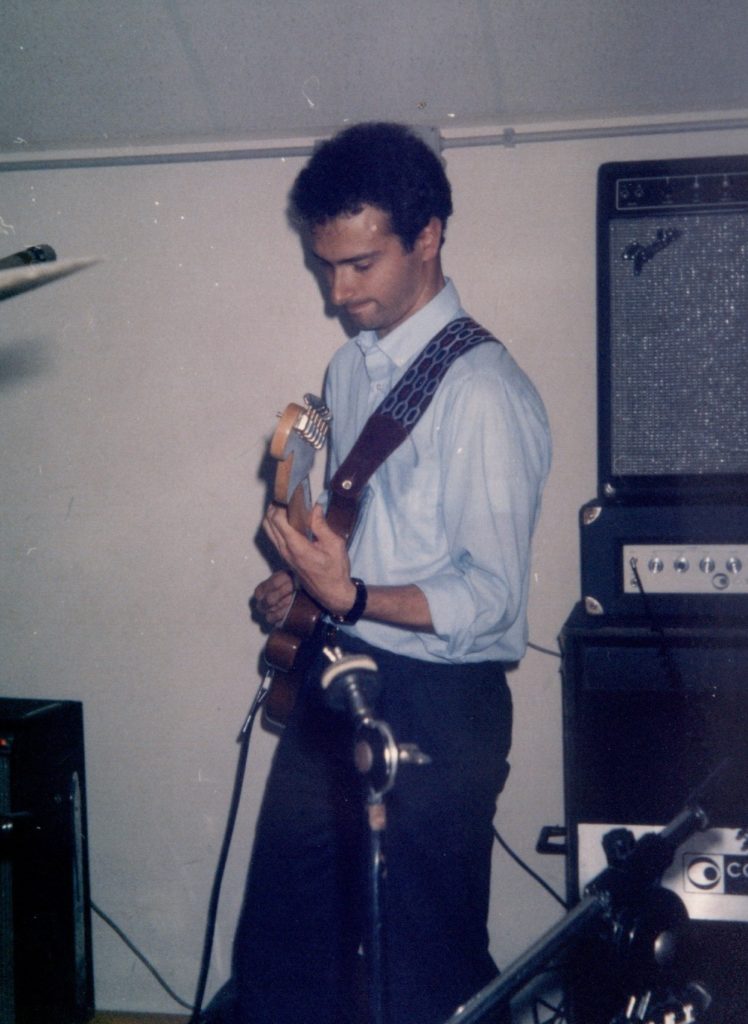 Music has always been fundamental to me. It’s the only art form that grabs me from within and shakes my being. Or at least it’s the only one I’m really in deep contact with. I’ve never created music. Maybe I don’t think I’m up to it, maybe it’s because I always feel like what would come out of me would be less appealing than what I listen to anyway. I play guitar in a band that does covers of rock songs by various authors. Ever since I was a kid I used to sing by memorizing the lyrics from the radio. When I memorized my first tune I was not yet in school. From the first year of school I remember that I used to play the same single 45 rpm record over and over again on one of my uncle’s portable turntable. I kept learning Italian melodic tunes. This is what radio and TV were offering at the time. My parents weren’t very musical, they didn’t listen to anything in particular. I only had the Hit Parade on the radio and it was almost all melodic Italian music. That was what I had and that was what I sang. Immediately my sister, two years younger, followed in my footsteps.
Music has always been fundamental to me. It’s the only art form that grabs me from within and shakes my being. Or at least it’s the only one I’m really in deep contact with. I’ve never created music. Maybe I don’t think I’m up to it, maybe it’s because I always feel like what would come out of me would be less appealing than what I listen to anyway. I play guitar in a band that does covers of rock songs by various authors. Ever since I was a kid I used to sing by memorizing the lyrics from the radio. When I memorized my first tune I was not yet in school. From the first year of school I remember that I used to play the same single 45 rpm record over and over again on one of my uncle’s portable turntable. I kept learning Italian melodic tunes. This is what radio and TV were offering at the time. My parents weren’t very musical, they didn’t listen to anything in particular. I only had the Hit Parade on the radio and it was almost all melodic Italian music. That was what I had and that was what I sang. Immediately my sister, two years younger, followed in my footsteps.
A couple of young uncles had a stereo system at home that years later they would pass on to me, triggering a passion for high fidelity. Perhaps among their records, perhaps by chance on TV, we discovered an Italian-American duo, a man and a woman singing. We identified with them and began to learn their lyrics to replicate their songs. They were Wess & Dori Ghezzi: Wesley Johnson, a black American musician (bassist and singer) who died in 2009 and Dori, a blonde Italian singer who would later become the wife of a prominent Italian singer-songwriter; she was also kidnapped to blackmail him. So we were making a singing duo. When we were driving around in the car with our parents, we would sit in the back seat and cheer them up with a large repertoire of songs all recited from memory, each of us singing our own part. It’s the only kind of memory I have left with age. I remember lyrics and chords, as well as solos, of a large number of songs. I can’t read music even though I know the system. But I never read lyrics, chords, progressions, even at rehearsals. Much less live. It must be because I started memorizing songs at an early age and I don’t want to give in now that I’m “older”. I’d rather muddle through the verses than give in to reading the lyrics while singing.
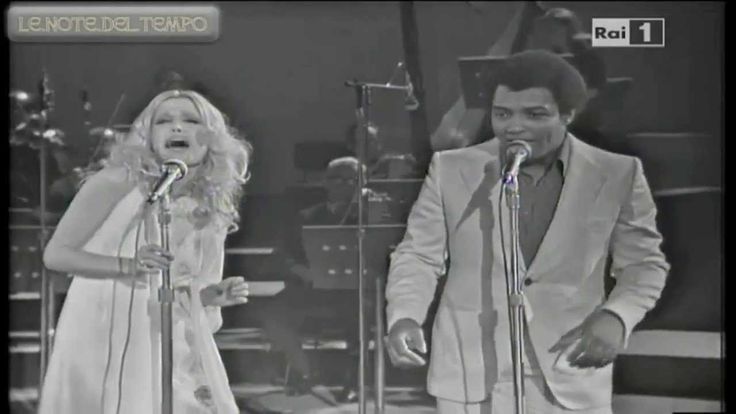
How did I get from here to Rock/Blues? It’s been a long road. It started with my sister when we were kids, when we used to imitate the Italian-American duo Wess & Dori Ghezzi.
When I started middle school my 9 year old sister discovered an uncle’s guitar at our paternal grandparents’ house. It had actually been bought by my father when he was in the military. He played with it for a while, learning 3-4 basic chords, and then left it for good at his parents’ house, where his brother, 10 years younger, had made greater progress and could perform a number of popular music pieces. He taught us the first chords and gave us that guitar as a gift. I remember very well the evening when, feeling that I had mastered the major and minor chords, I sat down on the floor with my guitar and tape recorder and patiently tried out each chord and compared it to some songs by Wess & Dori Ghezzi until I found the right ones (more or less). Soon we had a sound base to sing on. That was also a great formative experience. Without any musical knowledge, only with my ear, I learned to understand how to find the chords of a song, at least those of pop music. It was a time when I didn’t think I would ever be able to play barre chords, much less guitar solos.
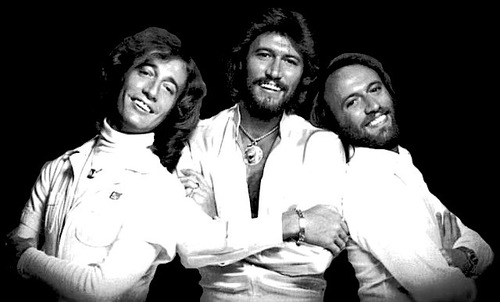
In the 70’s I was hooked on the Brothers Gibb (Bee Gees), who became famous for discomusic sung in falsetto, but my sister and I would play and sing the old songs that predate their worldwide success
After some time, a school friend who was DJing in a local radio station passed me a tape of some of the Bee Gees’ big hits of the time. So we also began to imitate the falsetto of the Gibb brothers, this time identifying ourselves as brothers too: Staying Alive, How Deep is your Love, If I Can’t Have You, Tragedy, Too Much Heaven. The Bee Gees became our reference and we bought not only Saturday Night Fever (a surprise that our parents brought home one night) but also Spirits Having Flown, their biggest hit. We also discovered the Bee Gees pre-falsetto, great tunes that had been around since the 60’s and that we also learned in an invented English (Massachusetts, I Just Gotta Get a Message to You, Run to Me, How Can You Mend a Broken Heart). The English lyrics of the most popular hits appeared in music magazines from time to time. So I learned the fast singing of Staying Alive, a tongue twister even for English-speaking singers. I also got hooked on that language and learned from the songs. The Bee Gees’ choirs taught us to find a different voice to sing along with. So we would try to get a third friend involved who could put chords on the guitar and help us with the singing. I had managed to learn barrés and by now I was mastering seventh chords as well. It was time to start understanding how to play solos. It would have been better to have an electric guitar. But then we were three guitarists, the ideal would have been that one would have been the soloist, one a rhythm player and the other a bass player. That became my sister’s job. We discovered that the bass guitar only had the 4 “lowest” strings on the guitar, so we took two strings off our uncle’s old guitar and carved slots to distribute them in the 6-string space. The end of that guitar came when we discovered that actual thicker bass strings existed. We mounted them on and the enormous tension permanently destroyed the old 1954 guitar. We needed a bass guitar and an electric guitar too. Our parents understood and came to the rescue by making us the best gift of our lives: an imitation Fender Stratocaster and an imitation Gibson Ripper bass… We were so happy!
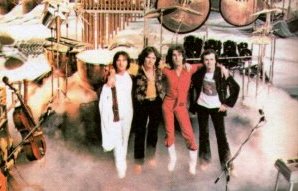
The Pooh, named after the Winnie-the-Pooh story, are the most successful Italian band, famous for their melodies; but we dug the 70’s songs unknown to most, with bass and electric guitar riffs that one would not expect from them. Thanks to my “fixation” for their albums from 1973 to ’80, until about mid-80s has provided me with a good technical basis thanks to attempts to imitate their great guitarist Dodi Battaglia (right).
The couple of young uncles with the stereo, however, had an Italian record that struck us very much for the bass lines that we were trying to understand by studying the Bee Gees’ songs. These ones were really superior and the guitarist did some incredible solos. It was Pooh’s Boomerang album. Even the bass player was doing solos as well and he had a strange soft sound in those cases. In songs like La Città degli Altri, Quaderno di Donna, Giorno per Giorno, Cercami, Classe 58 and Il Ragazzo del Cielo there was a lot more going on but it was all more difficult. Dodi Battaglia’s solos were a daunting task for me. Slowly I began to memorize the phrasing, then one note at a time I tried to find them but at one point I had to resort to the help of a friend who was studying at the conservatory. But that was a great exercise too. My only real regret is that it didn’t drive me to take lessons. I had a knack for the guitar and had a great musical ear. I could have improved tremendously. I also didn’t have anyone to direct me towards music where the electric guitar was the main instrument: Blues and then Rock. It would have been great to have, like many other guitarists, references of that kind at that young age. I remained for years with the “fixation” of The Pooh. Fortunately, Dodi Battaglia is an authentic phenomenon. The Pooh production of the 70’s contains real musical gems unknown to the general public. Songs such as Il Tempo Una Donna La Città, Oceano, 1966, Padre del Fuoco Padre del Tuono Padre del Nulla, Il Primo Giorno di Libertà, Gitano, Odissey, Fantastic Fly, Gatto di Strada are remarkable from all points of view and I don’t deny them even today.
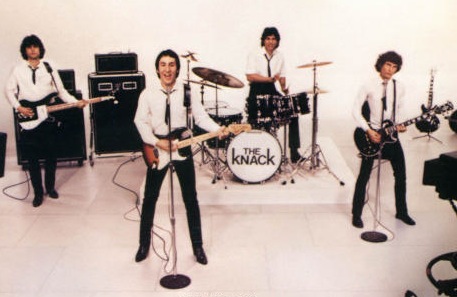
My Sharona was a shock to me, I couldn’t stop listening to it and dreamed of a band like The Knack to play rock covers of old Bee Gees songs and My Sharona with, but I had no idea how to…
But at that time I bought two 45s that I listened to on repeat on the stereo record player that had been passed down from those young uncles to us. They were My Sharona by The Knack and Tunnel of Love by Dire Straits. I couldn’t stop listening to them. It was rock breaking through. But even though I could barely follow Dodi Battaglia’s solos, I still didn’t know the basics of rock and I couldn’t even figure out how to play the power chords of the Dire Straits song (and I had no idea about Mark Knopfler’s finger picking). I was blown away. I didn’t know how to play them (they’re not songs that can be played with full chords and sung like the melodic Bee Gees and Pooh songs).
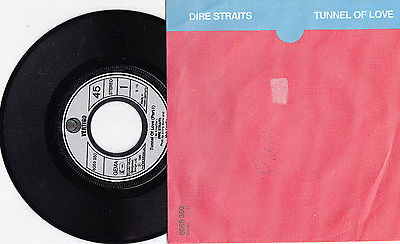
I wore out the Tunnel of Love 45, putting it on repeat while doing homework, wondering how Mark Knopfler could sound like that. This track, along with My Sharona by The Knack, Message in a Bottle by The Police, Another Brick in the Wall by Pink Floyd, and even Rosanna by Toto, was trying to suggest what I should really be listening to… but it would take more time….
The scarce means at my disposal would have kept me at a respectful distance from this music for a few more years, but I realized it gave me different, more intense sensations. A sort of respectful fear prevented me from delving into it and I insisted for a long time on The Pooh, also because at a certain point we met a drummer and a rhythm guitarist who wanted to play this music with us. We put together a small band, the rhythm guitarist learned to play chords on the keyboards and so we had fun playing in the rehearsal rooms, coming out with some tapes that I still have. Those were the 80s, the years of university for me and my sister. The recordings made us understand that it’s one thing to “sing with a guitar in your hand” as all Italians know how to do, but it’s another thing to record yourself and then listen again, horrified, to the result. Things are done in another way. Little by little we learned.

Profound and total musical upheaval! I had had an inkling of this, but with the Boss I realized what I needed! Not so much for the guitar itself, but for the energy and passion of his music. After the mid 80’s I had finally found my way and this box set of 5 LPs has been fundamental…
But I had a certain musical restlessness. I accepted Italian melodies when the guitar solos included were interesting. For The Pooh this was happening, but they too were in a decadent phase. I wanted something more but didn’t know how to look for it. I had learned to play some Dire Straits and Pink Floyd and the band followed me in doing so. Duran Duran and Spandau Ballet were all the rage at the time and we covered some of their hits as well. I thought I would find what I was looking for there but I was so wrong. Then our younger twin cousins lent us a cassette: Bruce Springsteen’s Born in the USA. My sister was not touched in the least. I was shocked. That energetic way of making music was unlike anything we had done together before. It gave me such a boost. Singing those songs full of emotion made my blood flow in my veins. A friend of mine gifted me the unobtainable Live 1975-1985 box set (it had just been sold out in a short time). I managed to convince my band to play Dancing in the Dark and later a song from the next album, Tougher than the Rest, with my sister playing bass and singing the lines of Patti Scialfa, now the boss’s wife. Likewise, she helped me on tracks like The River and a few others that pleased her, but she generally didn’t like the Boss. I, on the other hand, was hooked.
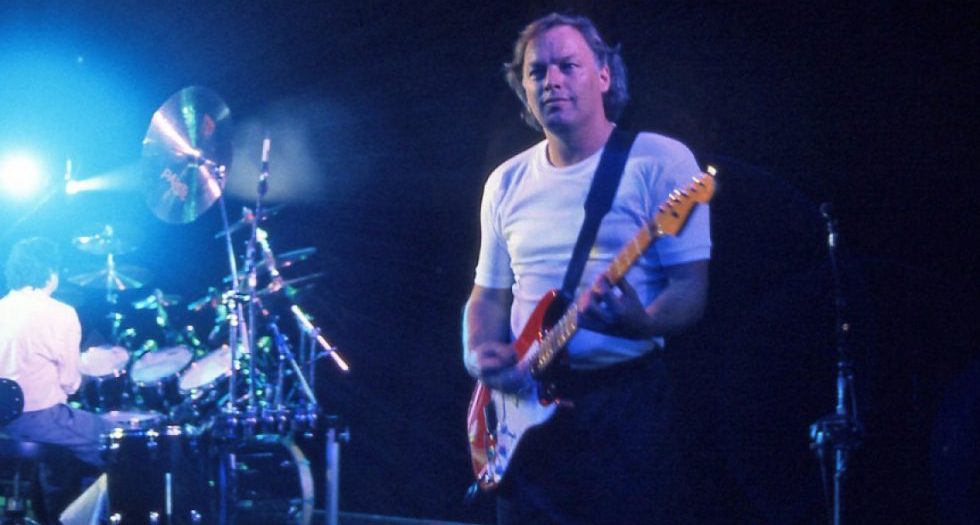
An old acquaintance of mine, Pink Floyd, reunited in the late 80’s and listening again to the live CD that begins with Shine On You Crazy Diamond left an indelible mark: I began to study Gilmour, dreaming of a cover band that could interpret Pink Floyd and Dire Straits as well as Springsteen.
Bruce Springsteen and The E Street Band played in Rome at the Stadio Flaminio on June 15, 1988. It was the date of my musical rebirth. It was what I was looking for. It was an internal revolution. Until then I had also really appreciated the new Sting of The Dream of the Blue Turtles, a very refined album in collaboration with monstrous jazz instrumentalists. But Sting was one of those who was saying that rock was dead. Seeing Bruce Springsteen live it seemed to me the opposite. I didn’t know the history, I didn’t know the past and what had happened in the 60s and 70s, so I didn’t understand what Sting meant. But as far as I was concerned rock had just been born.
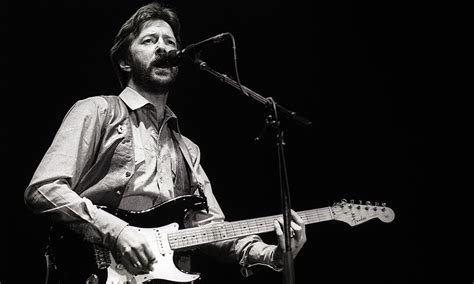
Back in the 90’s I also used to listen to and play some Eric Clapton. The work he did for the blues in the 60s is beyond measure.
The Boss had changed my musical life, he had made me discover my true tastes. I needed that musically. The result was that much of what I had listened to and played until then was “dull” compared to so much energy. It was like a drug. I needed it. I would spend hours with my imitation Stratocaster playing and singing along to songs like Backstreets, Darkness on the Edge of Town, Born to Run, Thunder Road, The River. Even done by me they would give me chills, sometimes even a lump in my throat. It was a different kind of music, as they say. It was inevitable that the musical paths between me and the rest of the band, which remained essentially tied to melodic music, would diverge. I had to rediscover Rock, I felt that I had already lost too much time. The Boss had awakened me. I couldn’t stop anymore.
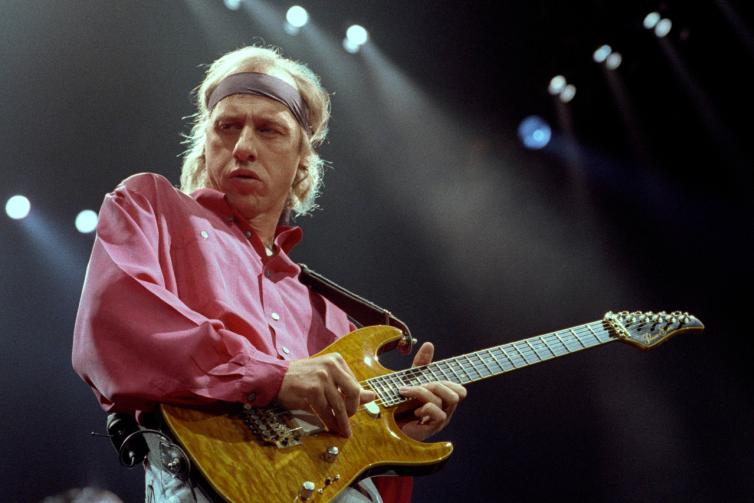
In the 90’s I dusted off Pink Floyd and Dire Straits at the same time, including several of their songs in my repertoire. Both bands were capable of creating certain atmospheres. Dire Straits were influential in my musical growth but I consider them a Mark Knopfler Band… 😉
I also rediscovered Dire Straits and Pink Floyd. I bought their albums, learned a few solos from Gilmour and Knopfler, but after a while the band lost momentum and broke up. We hadn’t done anything special, just rehearsal rooms and live tape recordings. We weren’t able to handle a live gig. That was a regret of mine for years. When I saw bands playing on a stage in a neighborhood or town square I felt a mixture of admiration and envy. The cousins who had introduced me to Bruce Springsteen had also done more, they played gigs in a Soul group, one of them had become a very good drummer and a few years later we would jam together, even with my sister on bass, with a pianist who was a fan of Elton John, even throwing in some Dire Straits and Toto.
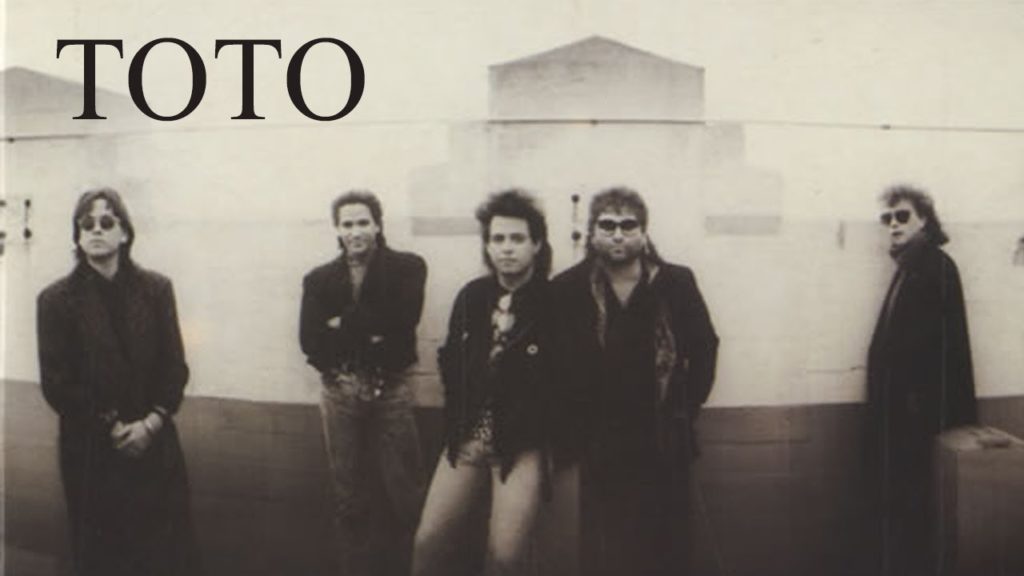
I knew and appreciated Toto since the times of Rosanna and Africa, but in the mid-90s I became passionate about their music and elected Steve Lukather as my favorite guitar player.
Toto would be my next ” thing”. Rosanna had been one of my favorite songs and I was ready to try to emulate Steve Lukather as much as possible. But I was on my own. I had bought myself a MIDI keyboard to make my own backing tracks to play on. Or I would do it behind the records. It was a critical phase in my life. I had graduated from college a while ago but couldn’t find a job. So I took a job in a musical instrument store, in the professional audio department, where I had to deal, given my computer skills, with hard disk recording, a cutting-edge technology in the early 90s but that is in all homes today, a computer is enough to have a high quality multi-track digital recording studio. In hindsight I could have taken advantage of the opportunity to carve out a job in music, perhaps as a sound engineer. I insisted on becoming a geologist by following the path of my studies and it was soon over. However, I came out of it with a beautiful Paul Reed Smith EG-4, a brand of which the store was then the official importer in Italy, replacing the old and now ravaged imitation Stratocaster that I gave to some cousins.
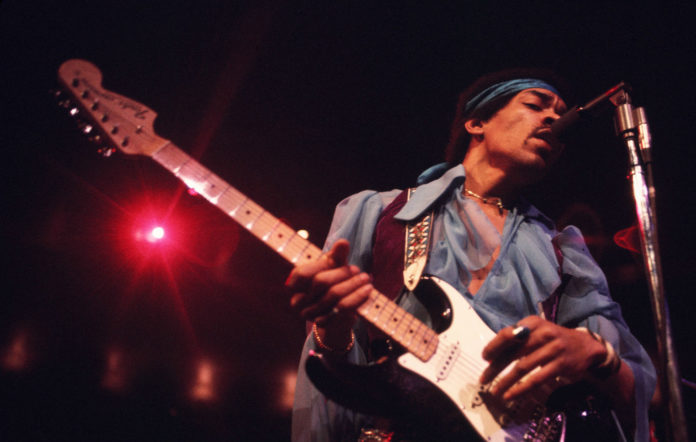
How can one not love Jimi Hendrix? To me he remains the greatest guitarist in history. He represents the guitar and revolutionized it more than anyone else – plus he made my beloved Stratocaster famous….
Years later I found myself teaching science in an Italian school in Cairo, Egypt. I set off on an adventure, leaving everything behind, thinking of a new life. But I made the huge mistake of not bringing my guitar with me. Instead, I had some geology books sent to me so that I could keep up to date and a cassette of U2’s Rattle and Hum, which I hadn’t listened to much and for some reason had come back to me. I only lasted a few months down there. When I returned I started working as a geologist and the soundtrack of that period became the U2. I bought albums, tuned my guitar to “drop E”, which means half a tone lower, and even had thick 0.011 inch strings installed on my new PRS to emulate The Edge.
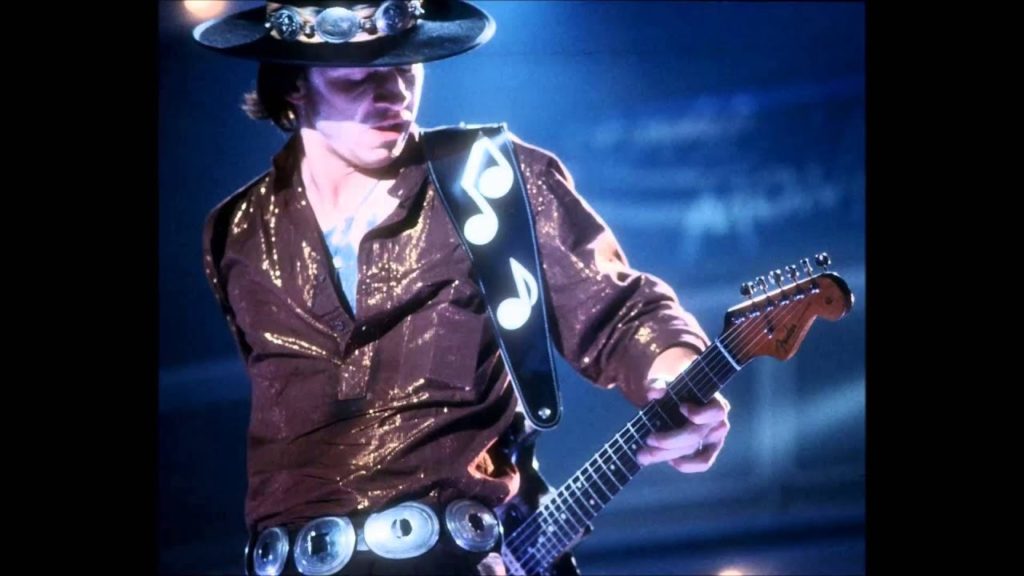
Stevie Ray Vaughan was inspired by an immense love for Jimi Hendrix and all the bluesmen who preceded him. Second to the great Jimi only because he came later, he is unfortunately united with him also by a tragic and premature end.
A band’s name had been buzzing around in my head for a few years. Pearl Jam. I don’t know why. I’d heard about them, wanted to get to know them better. I bought my first CD in 98: Vitalogy. The impact was huge. The Rock energy of U2 mixed with the pathos of Springsteen and the guitar sounds of The Knack or classic Rock. Pearl Jam are my contemporaries. I had found the ideal music with them. But I would never have been able to play it in a band. On average their fans are much younger than me. The bulk of the fans usually follow older musicians, but there is no shortage of peers. A drummer friend of mine was also quite taken with their music and one day at his house we recorded some tracks with me on guitar and vocals. I later added lead guitar and bass on the computer. I never did more than that. Playing in a band seemed like a thing of the past. I was too old, I was going to “settle down” soon. The rock music of Pearl Jam, which reminded me so much of the classic rock of the past, pushed me to search for this lost past. I rediscovered Led Zeppelin and from them I went back to the Rolling Stones, Jimi Hendrix, to go forward in time to Stevie Ray Vaughan. Indispensable baggage for a guitarist. Better late than never.
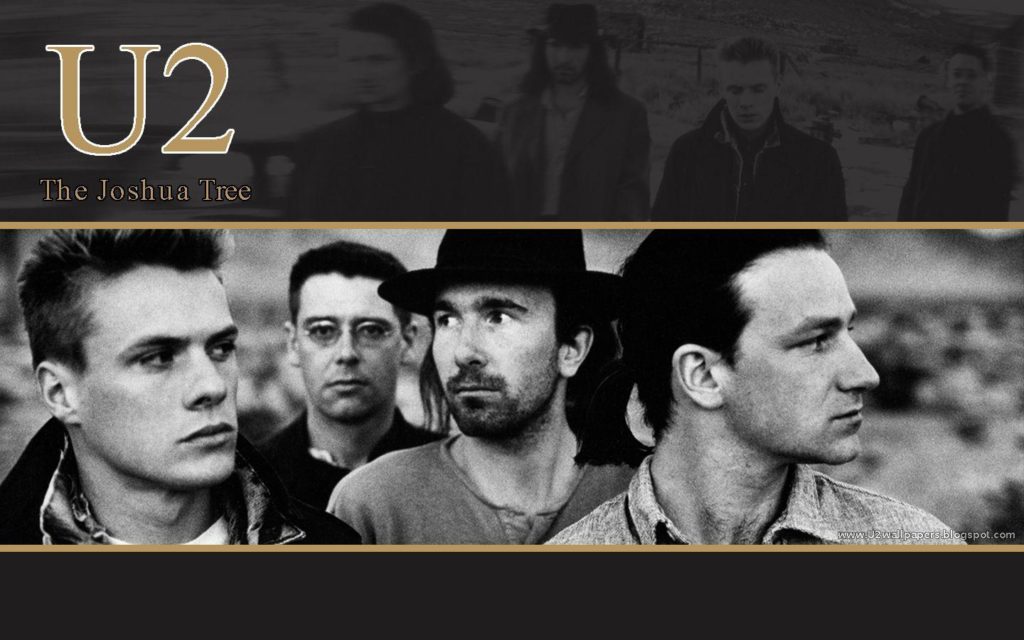
At the end of the 90’s I found the pathos of Bruce Springsteen in U2 and I experimented with The Edge a different way of playing the guitar, always maintaining the great energy typical of rock.
Pearl Jam was the soundtrack during the best time of my life, from my work as a university researcher and my two trips as a geologist to the USA. During the second one I stayed almost three months and started the affair with what is now my wife in a spectacular way in New York. The day she came to my house, as soon as I got back from New York, I played Pearl Jam for her while we were hugging. We would not see them live until several years later at a concert in Rome on June 26, 2018, the day of our 11th wedding anniversary. We had got married in New York in 2007 and went back again in 2010 to bring our son to meet my American relatives. All with PJ’s as the soundtrack. In the meantime I had also gotten a job with an oil company, I was a father, I was making good money.
I had gotten everything I was looking for. Years before, to my own surprise, I had become passionate about Aikido, a non-competitive Japanese martial art. It had been a thunderbolt, an upheaval. I gave it body and soul. The guitar was in storage all year round, rarely dusted off. I would occasionally use the acoustic to sing a little Pearl Jam, U2, Springsteen from time to time. Nothing more. By then, music was a thing of the past. I was an aikidoka. I would become a black belt and then even an instructor. Who would have imagined that? Music remained as listening, high fidelity; I was beginning to see jazz as the music of my future, as a user, not a player.
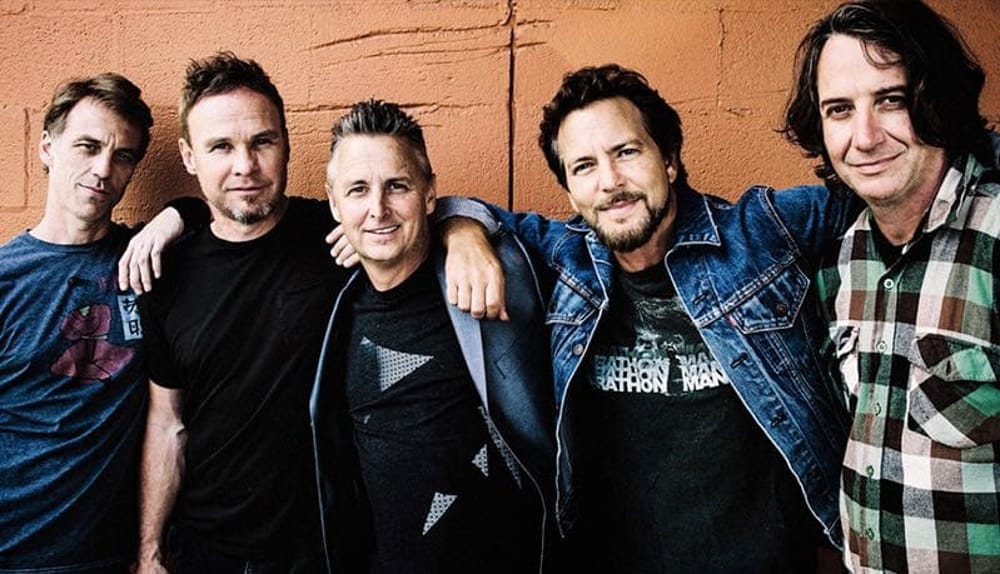
Probably Pearl Jam, my age peers, are the band I loved the most, soundtracking the most important part of my life. To me they are pure rock…
But every now and then I would catch myself imagining myself on a stage playing solo in a band. It was clearly a sign that I had left something unfinished. I don’t know why, other than songs by U2, Pearl Jam, or Led Zeppelin, I most often imagined myself playing Comfortably Numb doing exactly the part of David Gilmour (maybe it was an omen). I thought about how much I would love to be able to do that. I’m not saying I’d become a professional musician, but like so many people who are invited to play with a band at a village party, I could have done it too. But it had never happened. Those I had played with had succeeded: my sister had concentrated on singing, she had taken lessons and every now and then she would have evenings with a friend, having fun with keyboard, acoustic guitars and voices. I was just a spectator. The drummer who played in our band when we were kids, now had his own band and every now and then they would do shows and invite us. The drummer I recorded those Pearl Jam sessions with also had his own band, got engaged to the singer and I was still just part of the audience. At the time everyone told me that I was the most prepared, that if I had studied I would have become “a train”. I actually directed the others quite a bit, explaining to them what they should do when we were in the rehearsal room. Then the others put it into practice and got to do gigs. I was the spectator. I had accomplished everything else: the job I dreamed of, a family, a son. But something was about to happen that would throw me off my balance.
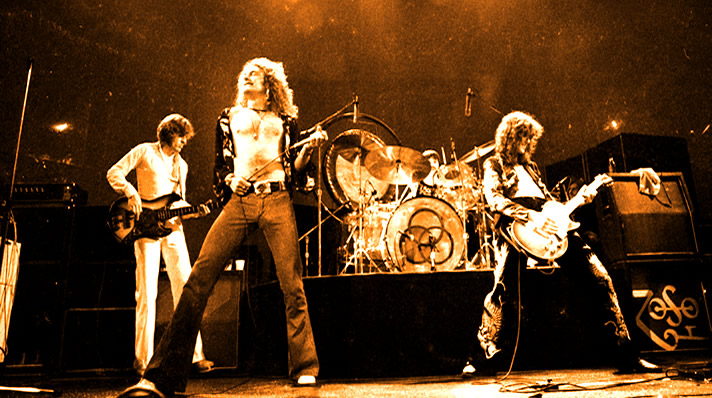
Pearl Jam started a journey back in time for me: their rock, which has ancient roots, pushed me to rediscover things I hadn’t had the courage to face before. And finally, in the 90’s, I took the courage to measure myself with Jimmy Page’s guitar and the great Led Zeppelin, the first real rock band, the undisputed masters…
For a whole host of reasons, in 2016 the Canadian company I worked for closed its doors. I found myself out of work, with a wife and young child to support, at a critical age (just over 50) where you’re too young to retire and too old for someone to rehire you. At least that’s how it is in Italy. I tried with my foreign contacts but the crisis in the industry was global. I tried going back to university, for a doctorate, but even there I was deemed too old. The support of the unemployment check plus help from family averted disaster. It had been a while since a guy invited me to join him and other friends our age to play. My sister had told him that I was a guitarist who would fit in well with what they were doing so, to pass the time and cultivate a passion that I had essentially abandoned, replacing it with Aikido. In the darkest period of my life music could have been a way to find some serenity. Until I lost my job, I had always declined because of family commitments and the Aikido course I was teaching. It was my wife who insisted that I go. She probably saw the state I was in. I accepted the invitation and suddenly everything came back to me. Among the songs the “boys” were rehearsing at the time were things I didn’t know like David Bowie’s Heroes, The Beatles’ Come Together (or more famous songs like Hey Jude and Imagine). Comfortably Numb by Pink Floyd was also included. It had been a long time since I had tried solos. It occurred to me to consult YouTube and I discovered a huge source of information and practical lessons. There were those who showed you step by step how to play a solo, how to recreate the sounds. It was incredible. I hadn’t thought about it, I was so out of guitar playing by then. I still remember very well the emotion I felt when I approached the date of the rehearsals, 5 years later. I dusted off my PRS and that evening I showed up there, in the beautiful greenery of the drummer’s riding school, a stone’s throw from the country house where we lived at the time. I was surprised to see a very young bass player. Two others were there with guitars. But they told me to take care of the lead parts. I plugged into an amplifier that they pointed out (I didn’t understand anything about amplifiers and effects) and asked, “What should we start with?” The drummer proposed “Comfortably Numb”. The circle had closed. In time we lost first the young bass player, then one of the rhythm guitarists. But within a few months I found myself for the first time in my life playing in public, in the riding school where we rehearsed, in front of family and friends. This was repeated a few months later at a local restaurant that knew us. Once again it was in front of family and friends.
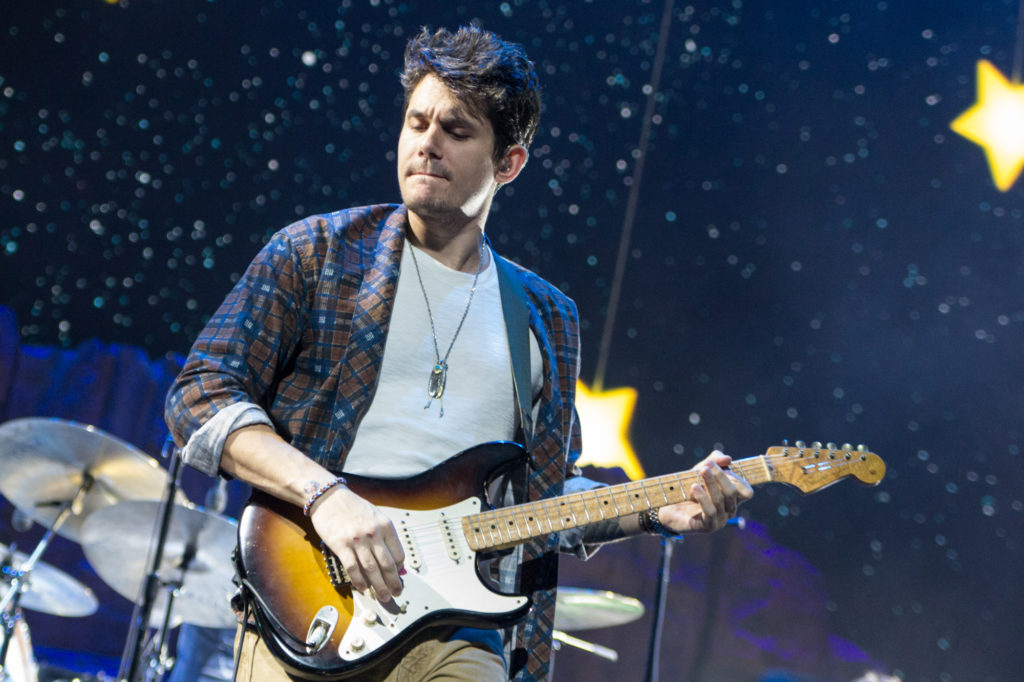
Today, the guitar is no longer central to the figure of the rock/pop musician. John Mayer is part of a newer generation of blues guitarists inspired by the greats of the past, Hendrix and SVR in particular. The guitar remains the protagonist for him even though much of his production is rather pop. Technically he has nothing to envy to anyone, not even to his own idols.
Then we were struck by tragedy. At the end of the year the other guitarist passed away from a heart attack. It was a bolt out of the blue. We stopped for a while, but we were convinced that he wouldn’t want us to stop. We resumed rehearsing with the aim of preparing a concert in the historic center of the village on the birthday of our friend. Other groups participated and we would have closed the evening with his son to sing with us. It was the real baptism of fire. There must have been a hundred people in a delightful historical setting. And the emotion was high. The anticipation charged it even more. We took the stage to begin with Pink Floyd’s Shine On You Crazy Diamond. After the keyboardist’s solo, alone in front of the audience, it was my turn with Gilmour’s famous introductory solo that must have surprised those in the audience who knew me, but certainly not in that capacity. After the famous arpeggio, the 4 magic notes, the imposing drums come in and the whole band joins in. I will never forget the applause that sparked in the audience. I repeat, perhaps taken by surprise, did not expect such an execution from us. And add the emotion of the reason why we were there, in remembrance of the departed bandmate, with his son, in front of his family. That loss and that memorial performance cemented us, made us a band.
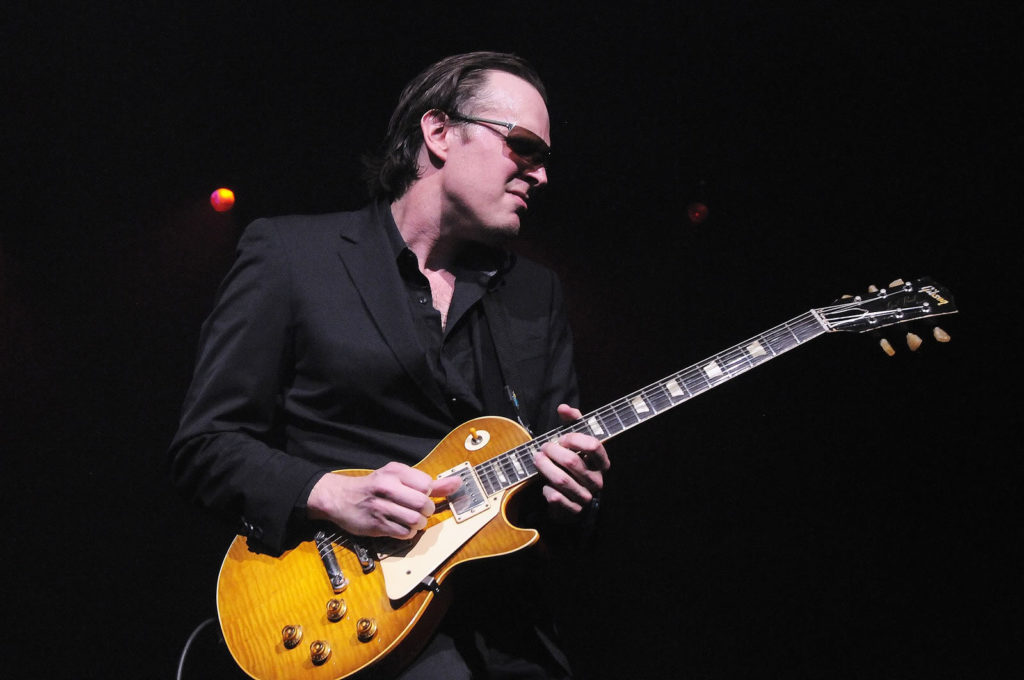
Joe Bonamassa is of the same generation as John Mayer but more devoted to the Blues. Inspired by the great bluesmen such as the Three Kings and the classics Hendrix, Clapton and Page, he is a guitar virtuoso. The Guitar continues to live a starring role with him in the supergroup Black Country Communion
The next summer solstice, the municipality invited us to perform in the main square. Immediately after that commemorative concert I went to work in a friend’s factory. I was happy to be productive again, but I must confess that morale was very low because of the menial job I had taken on despite my degree and experience in science. Fortunately, music had returned to support my well-being and balance. When, in the afternoon after work, I went with the equipment to the square and saw the stage they were setting up for us and others, I was literally amazed. It seemed too much for our level. But what was one of my regrets was coming true. That night we performed successfully and ended with Comfortably Numb, now the standard ending to our shows. We still had a guitarist with us who would later stop playing with us but would hire me in his company because of my computer and problem-solving skills typical of someone with a scientific background.
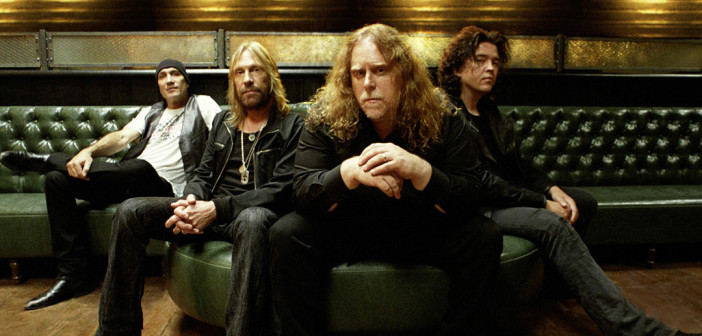
But if I have to say who still has the real Blues in his veins today, I have no doubt: Warren Haynes is the best. Former second generation Allmann Brothers Band, today he is active both as a soloist and with his excellent group Gov’t Mule, ranging from pure Blues to Southern Rock, passing also through the more classic Rock. They are my favorite among the bands active today.
In the end I can say that I found a job thanks to music. Rediscovering my passion for the electric guitar I dusted off the Blues and the great fundamental guitarists like Jimi Hendrix, Eric Clapton, Stevie Ray Vaughan, groups like the Allman Brothers Band, Lynyrd Skynyrd, Gov’t Mule. I also dusted off my boyhood dream of having a Fender Stratocaster, so I resold the PRS well and with that money I bought a Made in Mexico Strat, an amp and pedals. I never understood anything about guitar effects but I got educated on that too thanks to Youtube. I have made technical improvements in playing, quite remarkable despite my age, recovering a lot of lost time thanks to the mass of professionals from all over the world who continue to publish instructional videos with an incredible amount of useful information to someone like me who had stopped before the advent of the Internet. The modern regret is therefore: what if I had never stopped, what if I had studied, enhanced, improved the technique….? But that’s not how it works.
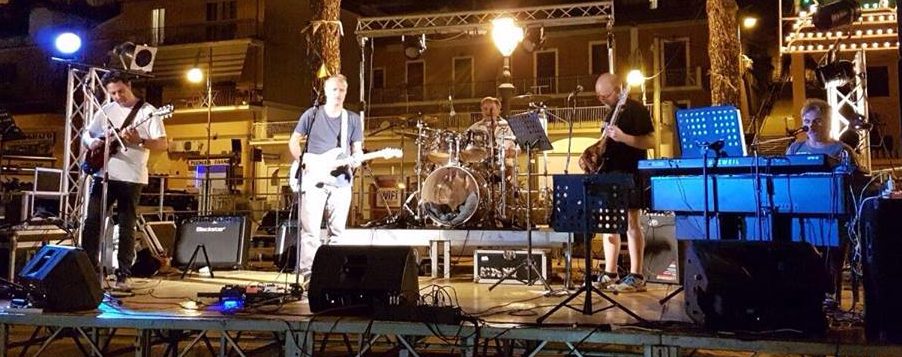
And here I am, I’m there with my band too, ridiculously compared to my references, but let me do it. I’ve been reborn thanks to my passion for the guitar, finally being able to get on stage, something I wasn’t able to do when I was young. I still have so much to learn and I’m convinced that I can do it even though I’m kind of old age… 😉
A negative turning point in my life led me to rediscover the passion of my youth. Playing guitar in a band has allowed me on the one hand to maintain a certain mental serenity in the darkest period, and on the other hand it has given me a new job opportunity that has put my life back on track. Well, if that’s not something…!